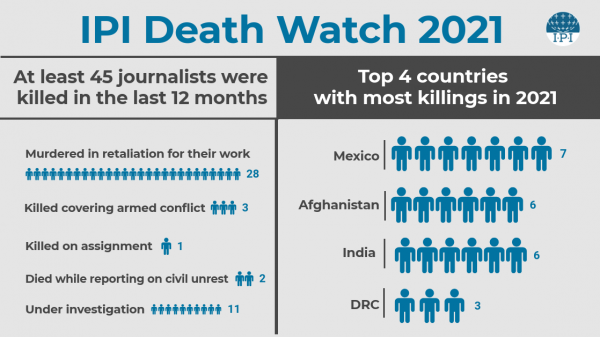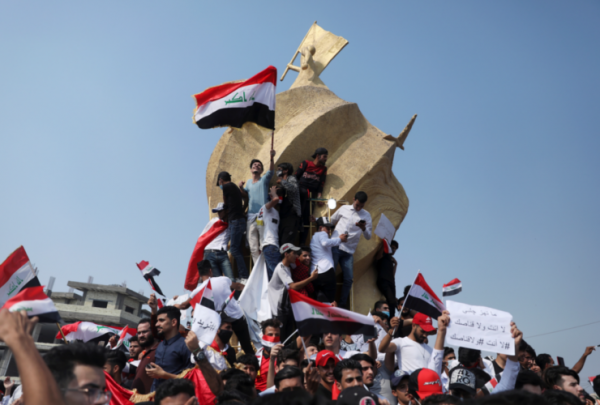The International Press Institute (IPI) called upon the U.S. military authorities to thoroughly review its investigation procedures into the deaths of journalists mistakenly killed by U.S. forces in Iraq.
Rejecting the military’s findings, as reported by the Associated Press, which absolved the U.S. from any blame in the 17 August death of Reuters’ cameraman Mazen Dana, Johann P. Fritz, director of IPI, said, “The military report is not nearly substantial enough to bear the weight of its conclusions. I am deeply troubled by the failure of the U.S. authorities to provide the report in its entirety and this lends credence to the view that there are still important issues to be resolved in Dana’s case.”
On the issue of the terms of engagement, Fritz commented, “The failure of the U.S. military to explain its rules of engagement for fighting terrorists hiding among the civilian population is a convenient shield because it allows the U.S. military to state that the soldier(s) acted in accordance with the ‘rules’ without having to show how this conclusion was actually reached.”
“While it is entirely possible that there may be security implications for the publication of the U.S. military’s rules of engagement I think there needs to be a proper weighing up of security issues against the need for transparency, not to mention the right of family members to know what happened to their loved ones. This is a debate that should take place in the public domain and not behind closed doors. ”
Regarding the investigation itself, Fritz said, “IPI has consistently called for open and transparent investigations into these cases. The public has been presented with an incomplete report and, as far as I know, it fails to address the central question of whether the rules of engagement for U. S. forces have changed since the Iraq war was declared to be at an end.”
“I naturally would have expected the rules of engagement to have been changed to meet the demands of a different type of warfare and yet Dana’s death seems to imply that these rules have been left unaltered.”
On the question of accountability, Fritz continued, “The U.S. military have investigated Dana’s death, reviewed the evidence and then drawn their own conclusions. In effect they are sitting in judgement upon themselves and this has a direct bearing on the way in which the reports are received both by the public and in the press.”
“I strongly believe that an independent tribunal should be created to review such cases. It should be comprised of three members: an independent judge as chairman, together with a military expert and a member of the civilian police force. Such a panel should be able to call witnesses, draw its own conclusions and should have the power to effect changes in military procedure.
“It is only by carrying out these investigations at arms length that the U.S. will regain the confidence of the journalists’ families and the international community,” Fritz said.
“Hopefully such a tribunal will go some way to avoiding the repetition of such a tragedy in the future.”


